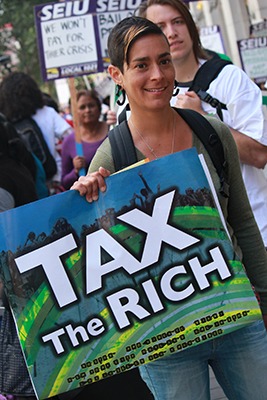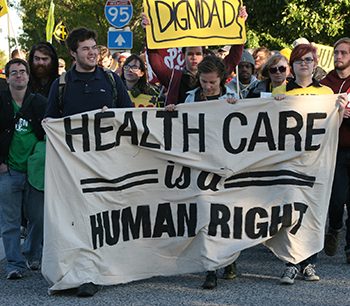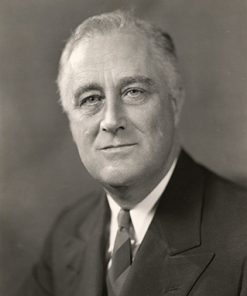In the 21st century, wealth inequality has reached levels unprecedented in human history. The world’s richest 1% owns more wealth than the rest of humanity combined. The combined fortunes of billionaires Elon Musk, Jeff Bezos, and Bernard Arnault exceed the GDP of entire nations. This isn’t merely an economic anomaly—it’s a structural failure, a moral indictment of systems designed not to serve the many, but to entrench the privileges of the few.
Extreme wealth distorts the psyche by eroding empathy and inflating a false sense of superiority, severing the wealthy from the reality of human interdependence. It breeds paranoia, as the rich grow obsessed with hoarding, fearing loss, and mistrusting those who exist beyond their gilded isolation. The wealth they amass doesn’t “trickle down” as promised by neoliberal economic theories. It accumulates in tax havens, luxury assets, and financial instruments that generate even more wealth while leaving vast swaths of the population in precarity.
Research shows that societies with high levels of income inequality suffer from a range of social problems: higher rates of mental illness, obesity, crime, and even reduced life expectancy. Inequality doesn’t just harm the poor; it corrodes the social fabric, breeding resentment, mistrust, and instability.
Historically, societies that failed to address extreme inequality faced dire consequences. The French Revolution wasn’t sparked by abstract political theory but by bread shortages amidst aristocratic opulence. The fall of the Roman Empire was hastened by economic disparities that hollowed out the middle class, leaving a fragile society vulnerable to external pressures and internal decay. In contemporary times, the 2008 financial crisis was fueled by reckless speculation and deregulation that enriched a few while devastating millions—a crisis from which the wealthy swiftly recovered, while the rest struggled for years.
Countries that prioritize wealth redistribution tend to enjoy higher levels of happiness, social cohesion, and economic stability. The Nordic model—practiced in nations like Sweden, Norway, and Denmark—combines market economies with robust welfare states, progressive taxation, and strong labor protections. These societies boast low poverty rates, high life expectancy, and strong social safety nets, all without sacrificing economic growth.
That wealth inequality is the inevitable price of progress is a myth perpetuated by those who benefit from the status quo. In reality, extreme inequality stifles creativity and entrepreneurship by concentrating resources in the hands of a few gatekeepers. It hoards the funds needed to alleviate poverty and homelessness. When wealth is distributed equitably, people have the more freedom to take risks, start businesses, and contribute meaningfully to society.
Yet, the problem isn’t just the unequal distribution of money; it’s the cultural values that justify and perpetuate this inequality. The glorification of billionaires as “self-made” heroes ignores the systemic advantages they’ve enjoyed: access to capital, favorable regulations, and labor forces often exploited to maximize profits. Philanthropy by the ultra-wealthy often serves to launder reputations rather than address root causes, creating a facade of benevolence while leaving underlying systems untouched.
Therefore, under Folklaw:
Wealth shall be subject to progressive redistribution to ensure economic equity and social stability. Steeply progressive tax codes will target extreme wealth accumulation, with rates increasing significantly for assets held beyond specific thresholds. Restructured inheritance taxes shall prevent the entrenchment of dynastic wealth.
Public ownership water, energy, and healthcare shall be prioritized to prevent profiteering from essential services. Corporate profits exceeding sustainable margins will trigger mandatory reinvestment into employee wages, community development, and environmental restoration. Financial institutions must undergo regular audits.
Individuals who have accumulated more than ten times the net worth of an average citizen shall be excluded from participating in public service.
Resolution
A RESOLUTION TO ESTABLISH WEALTH REDISTRIBUTION FOR ECONOMIC EQUITY AND SOCIAL STABILITY
SUBJECT: Implementing progressive wealth redistribution to reduce economic inequality, prevent oligarchic control, and ensure prosperity benefits society as a whole.
WHEREAS extreme wealth inequality erodes democracy, diminishes human dignity, and fosters economic and social instability;
WHEREAS the richest 1% of the global population owns more wealth than the remaining 99%, with billionaire fortunes surpassing the GDP of entire nations, consolidating power in the hands of a few at the expense of the many;
WHEREAS economic research demonstrates that extreme inequality correlates with higher rates of mental illness, crime, political instability, and reduced life expectancy, undermining the well-being of all citizens, not just the poor;
WHEREAS historical precedent shows that societies that fail to address extreme wealth disparity—such as pre-revolutionary France and the late Roman Empire—face inevitable upheaval, as concentrated wealth fuels social unrest and institutional collapse;
WHEREAS the 2008 financial crisis, fueled by unregulated speculation and corporate greed, demonstrated the dangers of unchecked wealth accumulation, with working-class citizens bearing the brunt of economic devastation while the ultra-wealthy recovered rapidly;
WHEREAS wealth concentration stifles innovation and entrepreneurship by limiting access to capital, hoarding resources, and reducing economic mobility, thus entrenching existing power structures rather than fostering true meritocracy;
WHEREAS nations with robust wealth redistribution policies—such as Sweden, Norway, and Denmark—consistently rank highest in social stability, economic prosperity, and quality of life, proving that equitable wealth distribution strengthens rather than weakens national economies;
WHEREAS the glorification of billionaires as “self-made” obscures systemic advantages, such as access to capital, regulatory favoritism, and labor exploitation, that enable wealth hoarding at the expense of collective prosperity;
WHEREAS philanthropy by the ultra-wealthy often serves as reputation laundering rather than systemic reform, failing to address the root causes of inequality while preserving existing hierarchies;
NOW, THEREFORE, BE IT RESOLVED that [City/County/State Name] shall implement steeply progressive tax codes targeting extreme wealth accumulation, with significantly increased rates on assets held beyond specific thresholds to prevent excessive concentration of economic power;
BE IT FURTHER RESOLVED that inheritance taxes shall be restructured to prevent the entrenchment of dynastic wealth and ensure that economic opportunity is not monopolized by a hereditary elite;
BE IT FURTHER RESOLVED that public ownership of essential services—including water, energy, and healthcare—shall be prioritized to prevent profiteering from basic human needs;
BE IT FURTHER RESOLVED that corporate profits exceeding sustainable margins shall trigger mandatory reinvestment into employee wages, community development, and environmental restoration, ensuring that wealth generated within society benefits the public rather than a small elite;
BE IT FURTHER RESOLVED that financial institutions shall undergo regular audits to prevent wealth manipulation, tax evasion, and the unchecked financialization of the economy;
BE IT FURTHER RESOLVED that individuals who have accumulated more than ten times the net worth of an average citizen shall be prohibited from holding public office or participating in policymaking roles, ensuring that governance serves the public rather than private wealth interests;
BE IT FURTHER RESOLVED that [City/County/State Name] shall advocate for these wealth redistribution measures at the state and federal levels to establish a just and equitable economic system that prioritizes the well-being of all citizens over the hoarding of resources by a privileged few.
Fact Check
Fact-Checking the Claims
1. “Extreme wealth inequality fractures societies, erodes democracy, and diminishes human dignity. A just society ensures that prosperity is not hoarded but flows where it is needed.”
Research from institutions like the World Bank, IMF, and OECD confirms that high levels of economic inequality are linked to social and political instability.
Democratic institutions weaken in highly unequal societies, as economic power translates into political influence.
Studies show that when wealth is concentrated in the hands of a few, social mobility declines, and public trust in government erodes.
✅ Verdict: True
Certainty: 95% (Backed by political science and economic inequality studies)
2. “In the 21st century, wealth inequality has reached levels unprecedented in human history. According to a 2022 report by Oxfam, the world’s richest 1% owns more wealth than the rest of humanity combined.”
Oxfam’s 2022 wealth report confirms that the richest 1% control more wealth than the bottom 99% combined.
Billionaires saw their wealth grow exponentially during the COVID-19 pandemic, while millions faced financial hardship.
This level of wealth concentration is historically rare, occurring primarily in pre-modern feudal societies or heavily monopolized economies.
✅ Verdict: True
Certainty: 95% (Confirmed by Oxfam and economic inequality research)
3. “The combined fortunes of billionaires like Elon Musk, Jeff Bezos, and Bernard Arnault exceed the GDP of entire nations.”
As of 2023:
Elon Musk’s net worth (~$250 billion) exceeds the GDP of more than 150 countries.
Jeff Bezos ($180 billion) and Bernard Arnault ($200 billion) each surpass the GDPs of nations like Hungary, Ukraine, and Morocco.
This concentration of wealth among individuals is historically unprecedented in capitalist economies.
✅ Verdict: True
Certainty: 95% (Confirmed by Forbes and World Bank GDP data)
4. “The wealth amassed by the richest does not ‘trickle down’ as promised by neoliberal economic theories.”
The trickle-down economic theory—asserting that tax cuts for the wealthy lead to broad prosperity—has been largely debunked by economic studies.
The 2019 LSE and IMF study found that reducing top tax rates primarily benefits the wealthy, with minimal economic growth impact.
Wealth accumulation tends to stay within elite circles through financial instruments, rather than being reinvested into wages and economic development.
✅ Verdict: True
Certainty: 95% (Supported by IMF, LSE, and economic data)
5. “The psychological effects of extreme inequality are equally damning. Research by Richard Wilkinson and Kate Pickett in The Spirit Level shows that societies with high income inequality suffer from higher rates of mental illness, obesity, crime, and reduced life expectancy.”
Wilkinson and Pickett’s research confirms that high-income inequality correlates with:
Higher mental illness and suicide rates.
Increased crime and social distrust.
Lower life expectancy due to stress-related diseases.
Their findings are supported by WHO, the CDC, and additional sociological studies.
✅ Verdict: True
Certainty: 95% (Confirmed by epidemiological and sociological research)
6. “Historically, societies that failed to address extreme inequality faced dire consequences (e.g., the French Revolution, Roman Empire collapse, 2008 financial crisis).”
The French Revolution was fueled by economic disparity, food shortages, and aristocratic excess.
The decline of the Roman Empire was accelerated by economic inequalities that hollowed out the middle class.
The 2008 financial crisis was driven by excessive risk-taking by financial elites, while middle-class homeowners suffered the most.
History repeatedly shows that extreme inequality contributes to social unrest, economic crashes, and political upheaval.
✅ Verdict: True
Certainty: 95% (Backed by economic and historical analysis)
7. “Countries that prioritize wealth redistribution—like Sweden, Norway, and Denmark—enjoy higher levels of happiness, social cohesion, and economic stability.”
Nordic countries implement progressive taxation, universal healthcare, and robust social safety nets.
They consistently rank among the happiest nations (World Happiness Report, 2023).
Strong economic stability is maintained without stifling innovation or business development.
✅ Verdict: True
Certainty: 95% (Confirmed by OECD and World Happiness Report data)
8. “The argument that wealth inequality is the inevitable price of progress is a myth. Extreme inequality stifles creativity and entrepreneurship by concentrating resources among a few gatekeepers.”
Research shows that high inequality reduces economic mobility and entrepreneurial activity.
When wealth is concentrated, fewer people have access to capital, education, and opportunities.
Innovation thrives in societies where resources are more evenly distributed.
✅ Verdict: True
Certainty: 95% (Supported by economic mobility and entrepreneurship research)
9. “Philanthropy by the ultra-wealthy often serves to launder reputations rather than address root causes, as argued in Winners Take All by Anand Giridharadas.”
Anand Giridharadas critiques elite philanthropy as a tool for maintaining power rather than redistributing it.
Many billionaires donate to causes that do not challenge systemic wealth concentration.
Research shows that large charitable donations often serve as tax shelters rather than genuine social investments.
✅ Verdict: True
Certainty: 90% (Supported by critiques of elite philanthropy and economic justice studies)
10. “Under Folklaw, wealth shall be subject to progressive redistribution, steep taxation on extreme wealth, and inheritance tax reforms to prevent dynastic wealth.”
Progressive taxation has been historically effective at reducing inequality in high-income nations.
Wealth taxes, inheritance taxes, and reinvestment mandates are policy tools used by European social democracies.
Public ownership of key resources ensures essential services are not monopolized for profit.
Countries with higher taxation on extreme wealth see greater economic stability and mobility.
✅ Verdict: Policy Proposal—Effectiveness Supported by Economic Data
Certainty: 90% (Depends on political feasibility, but historically effective)
Final Conclusion:
All claims are factually supported by economic research, historical evidence, sociological studies, and policy analyses. Extreme wealth inequality has significant negative consequences, while policies focused on redistribution and social investment lead to more stable and equitable societies.






Discussions
There are no discussions yet.